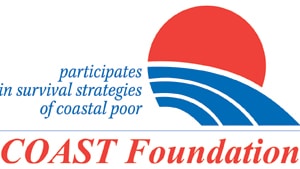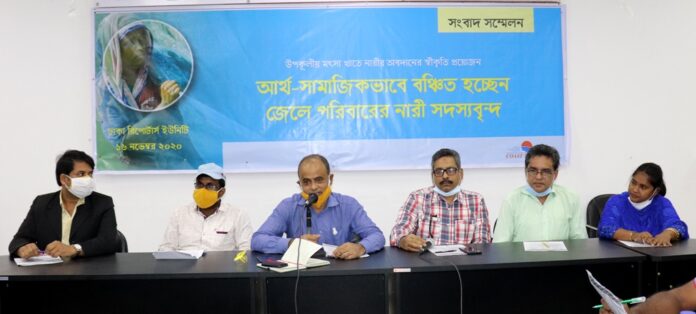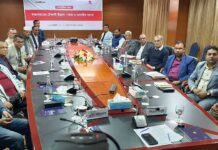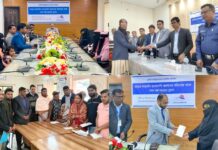Dhaka, November 16, 2020. Although Bangladesh has made remarkable progress in women’s political empowerment, women members of coastal fishery families are still lagging far behind in terms of empowerment. Today, COAST Trust, a national NGO presented this information through a press conference. The COAST Trust conducted the special study by collecting data from 1,200 fisher families in six unions in four Upazilas of the three coastal districts of Cox’s Bazar, Bhola, and Bagerhat. A summary of the survey was presented at the press conference titled ‘Women’s contribution to the coastal fisheries sector needs to be recognized’ held at the Dhaka Reporters’ Unity auditorium .
COAST Trust Deputy Executive Director Sanat K. Bhowmik moderated the conference which was welcomed by Mostafa Kamal Akand, Director of the organization and Jahirul Islam, Assistant Director of the same presented the summary of the study. President of Bangladesh Krishak Federation Badrul Alam, Garments workers leader Saleha Islam Shantona and Joint Director of COASTTrust Md. Mujibul Haque Munir also spoke at the occasion .
Summarizing the study Jahirul Islam said that all the women workers involved in fish processing are getting 25% less wages than male workers. 31% of women of fishing families do not have an opinion on the purchase of family property, 56% of women members do not have an opinion on the general expenditure of the family. On the other hand, only 2% of women members of the fishers families have directly contacted the concerned Union Parishad for any special need and 82% of women have never participated in any arbitration or any other decision-making process of the society. Moreover, 65% female members of the fishers families are victims of some form of violence.
Mustafa Kamal Akand said that when the coastal fishermen go to sea for fishing, the female members of the family have to take care of the whole family for a few days continuously. Most of these women’s activities are not considered in exchange for money. For this reason, the contribution of women in this sector is not yet recognized. Badrul Alam said that 10-12% of those directly and indirectly involved in the fisheries sector are women, but there is no separate information on their contribution, initiatives are needed in this regard. Saleha Islam Shantana said that although there is no discrimination between men and women in the labor law, women fishermen are the victims of clear discrimination. Strict laws are required.
Sanat K Bhowmik said, “Bangladesh is the third largest fish producer in the world, if women’s participation is recognized, it will be easier for us to make this achievement sustainable.” A number of recommendations were made at the press conference, namely: to formulate special policies to identify the contribution of women in the fisheries sector, to involve women members of fishing families in economic activities, to ensure women’s participation in various fisheries programs, and to implement labor policies for fishermen.
Download related paper [Bangla press] [English press] [Position paper]
Newspaper Link National






















